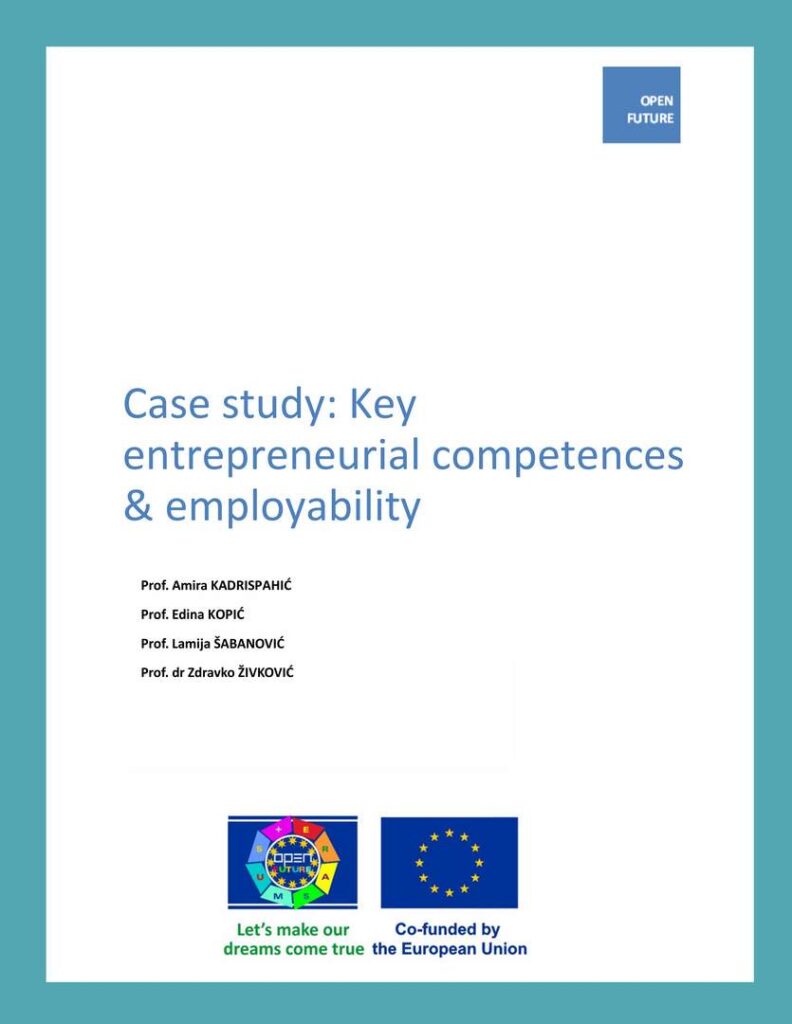Deliverables
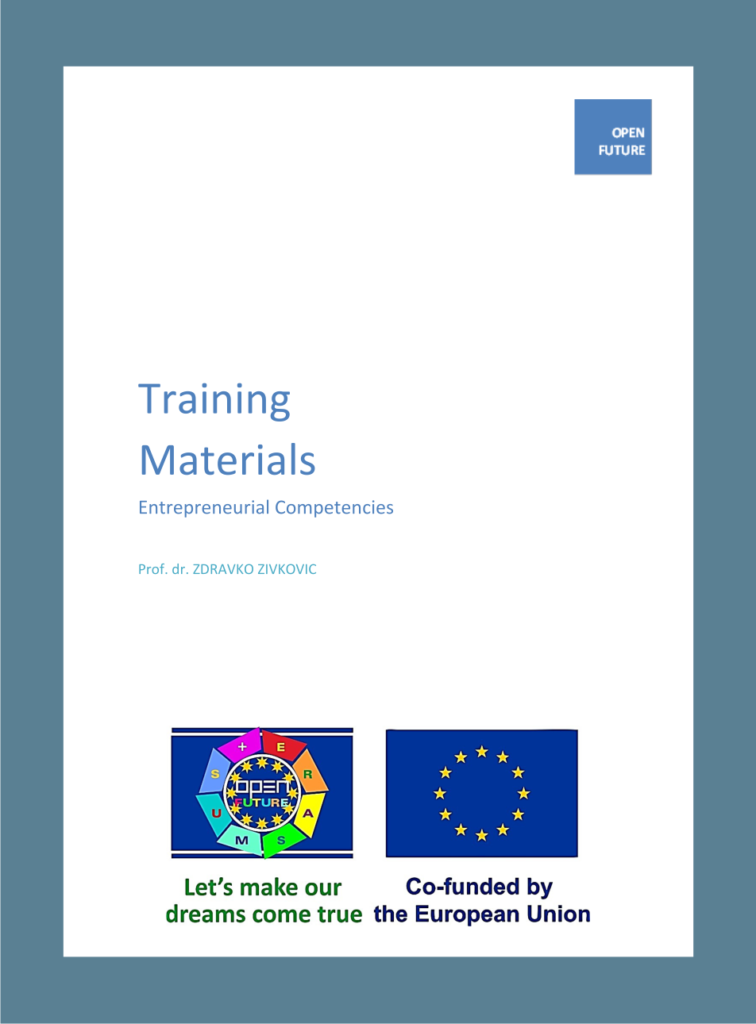
Training Materials
A tool to achieve the entrepreneurial mindset that helps future entrepreneurs transform ideas into action.
The material is primarily intended for stakeholders interested in starting a business through the establishment of start-up companies, to familiarize themselves with the techniques and procedures used by the most successful companies in the world when assessing market conditions for the successful start of entrepreneurial ventures – launching new products and services, analyzing business problem solving, evaluating potential risks, setting priorities, setting smart goals, effective communication, change management, lessons learned analysis – all in the function of business idea assessment, rational use and acquisition of necessary resources and effective transformation of the initial idea into a successful entrepreneurial venture.
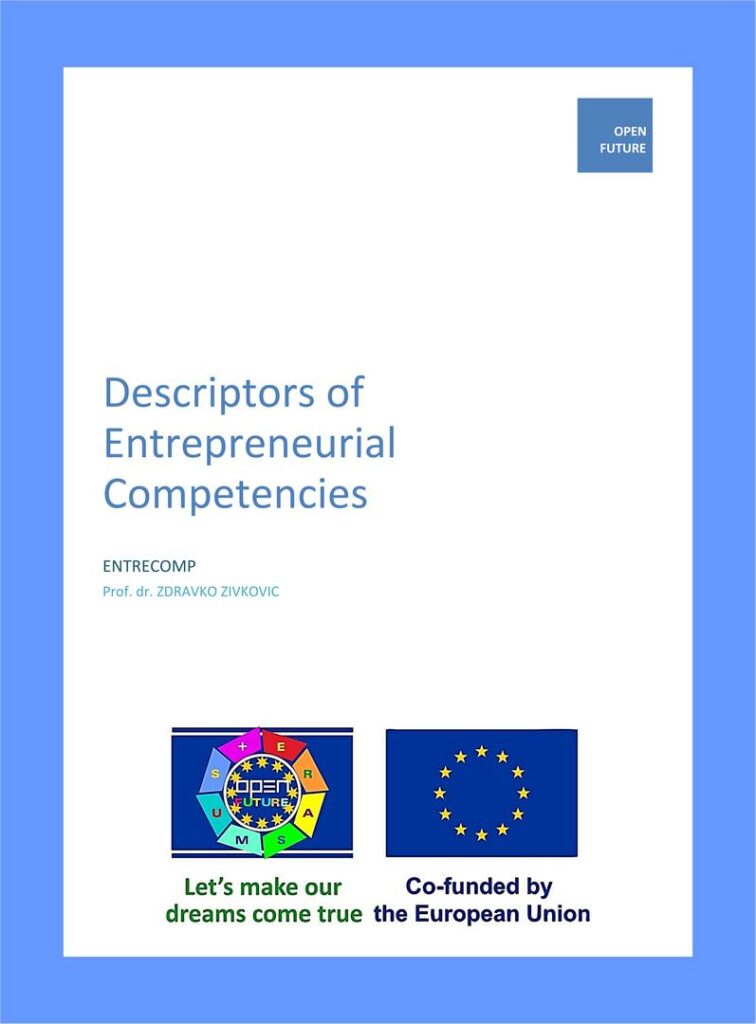
Descriptions of Entrepreneurial Competencies
In this material, you will find out what are the key entrepreneurial competencies according to the EntreComp model, as well as detailed descriptions with practical examples of each of the 15 competencies that are considered key to mastering an entrepreneurial mindset and changing attitudes in order to take initiatives to create new values – instead of classic programs for establishment and management of SMEs (small and medium-sized enterprises).
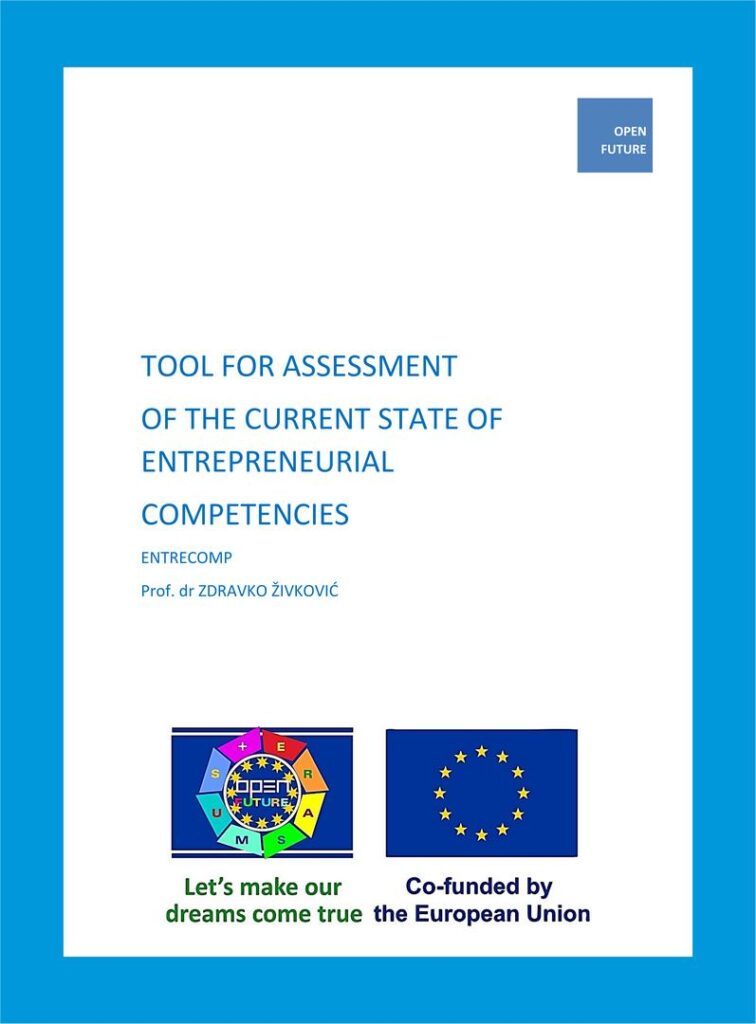
A tool for assessing the current state of entrepreneurial competencies
This material is compiled in the form of a questionnaire, with the aim that users can find out their current level of knowledge about 15 key entrepreneurial competencies according to the EntreComp model, then compare their answers with the correct solutions and finally, during the training, complete their missing knowledge in this area. Test results will not be published publicly, they will be known only to each individual participant and will serve as a personal guide to the need for additional training.
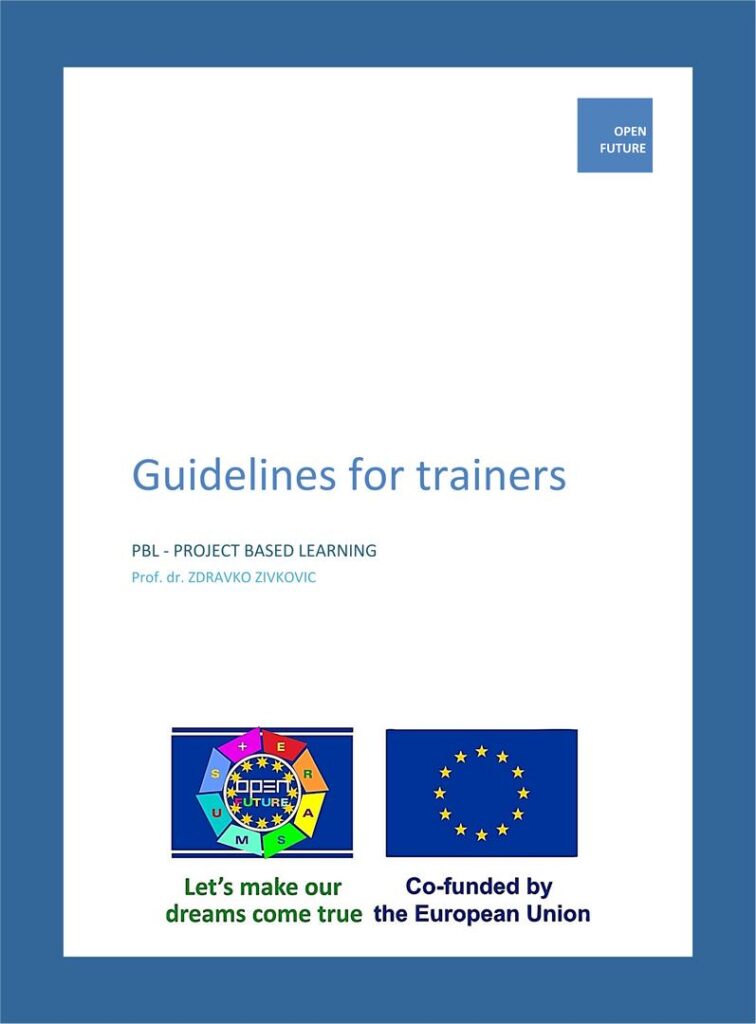
Guidelines for trainers
In this material, created as a guide for teachers on how to organize PBL (project-based learning) workshops successfully, you will learn, among other things, how to build a balance between challenge and support, how to establish trust and open conversation without asserting authority, how to encourage everyone’s participation without auto-censorship – by introducing the right to make mistakes, how to balance the relationship between dominant and quiet students and how to stimulate cooperation on joint problem-solving.
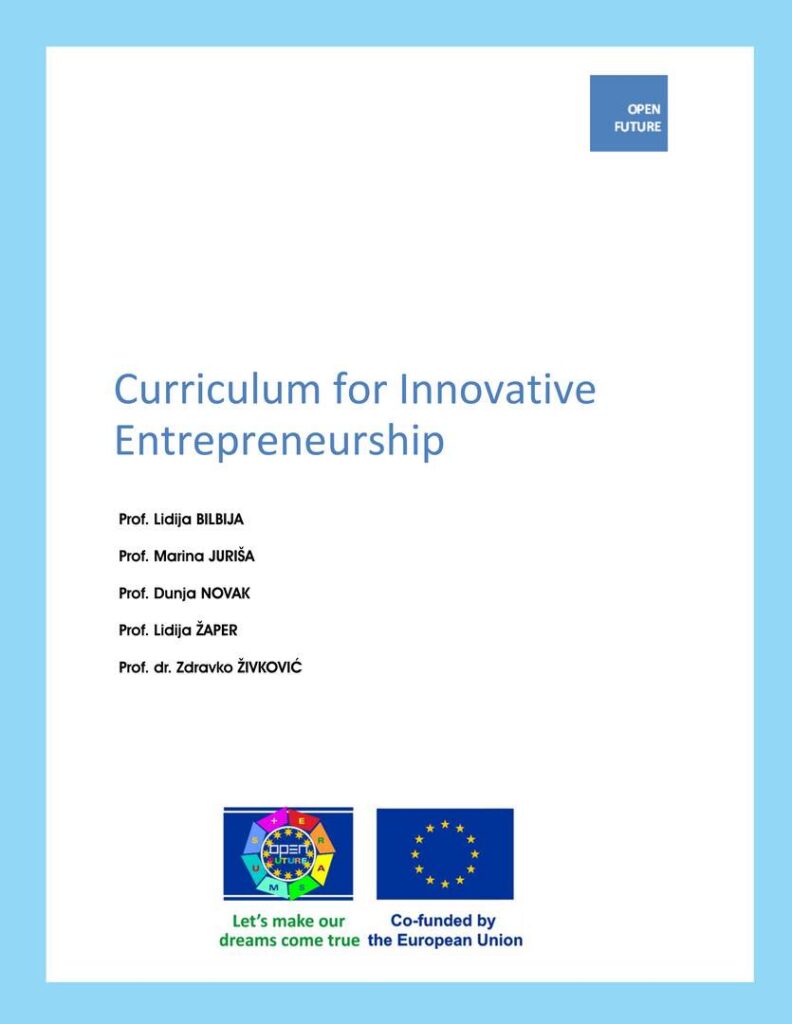
Curriculum for Innovative Entrepreneurship
The curriculum is set as a proposal that can be used flexibly, in accordance with the needs and wishes of the user, regardless of the profile of the VET institution, geographical location, by adjusting the class fund, choosing lessons, activities and teaching methods, and it can be part of the regular or extracurricular education system.
